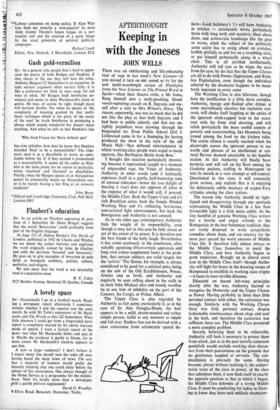Gash gold-vermilion
Sir: As a general rule, people find it hard to appre- ciate the poetry of both Bridges and Hopkins; if they cleave to the one they will hate the other. Anthony Burgess (22 September) is no exception. In such matters argument often matters little; it is like a preference for thick or clear soup, for red wine or white. Mr Burgess finds Swinburne un- musical and seems to deny Wordsworth's claim to genius. He may, of course, be right, though many will harbour doubts. Yet when he speaks of 'the complexity of meaning granted by that multi- linear technique which is the glory of the music of the west' he rivals Swinburne in producing a phrase which sounds wonderful but doesn't mean anything. And when he tells us that Hopkins's line 'Who fired France for Mary without spot' has nine syllables, how does he know that Hopkins intended 'fired' to be a monosyllable? The older poets used it as a dissyllable or wrote an apos- trophe before the 'd' if they wanted it pronounced as a monosyllable. It seems all the odder as Hop- kins in the same poem, for no reason in particular, writes 'swarmed' and 'charmed' as dissyllables. Finally, when Mr Burgess speaks of an Alexandrian sonnet he presumably means an Alexandrine one, or is he merely having a last fling at an outworn tradition?
John Burns 'Oxford and Cambridge University Club, Pall Mall, London SW1


































 Previous page
Previous page